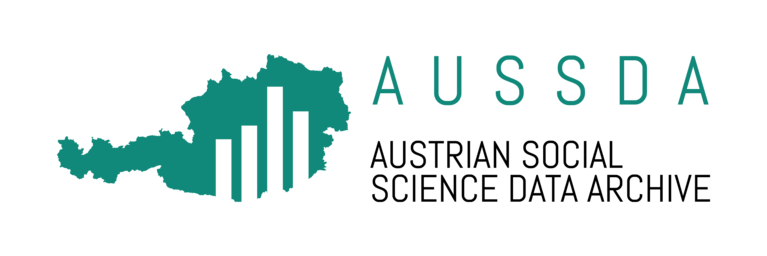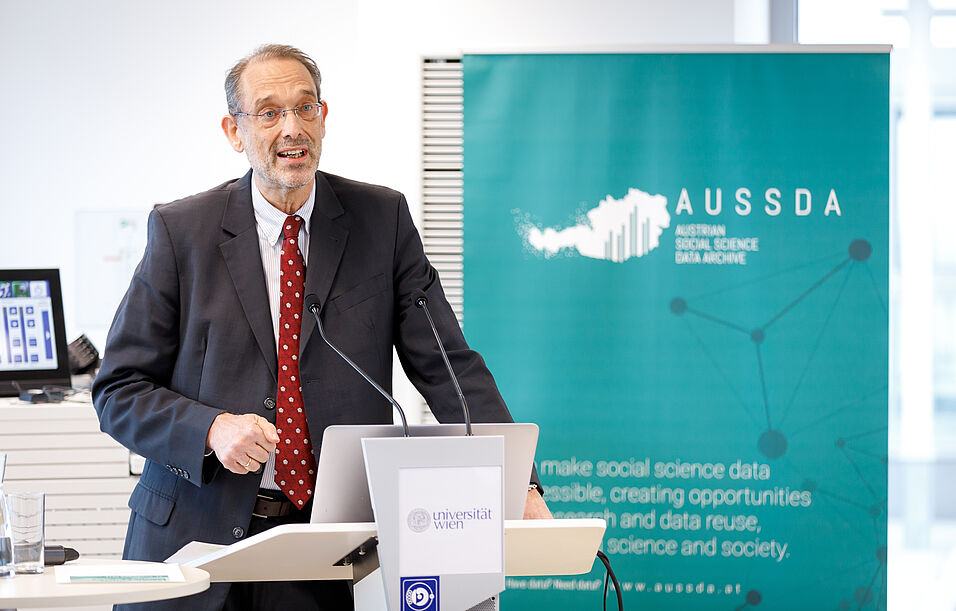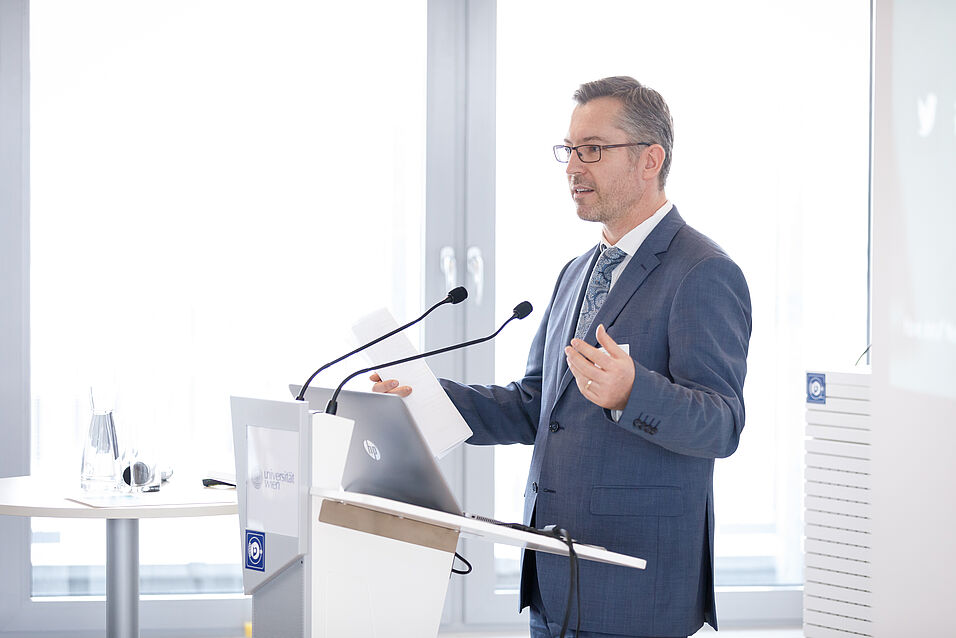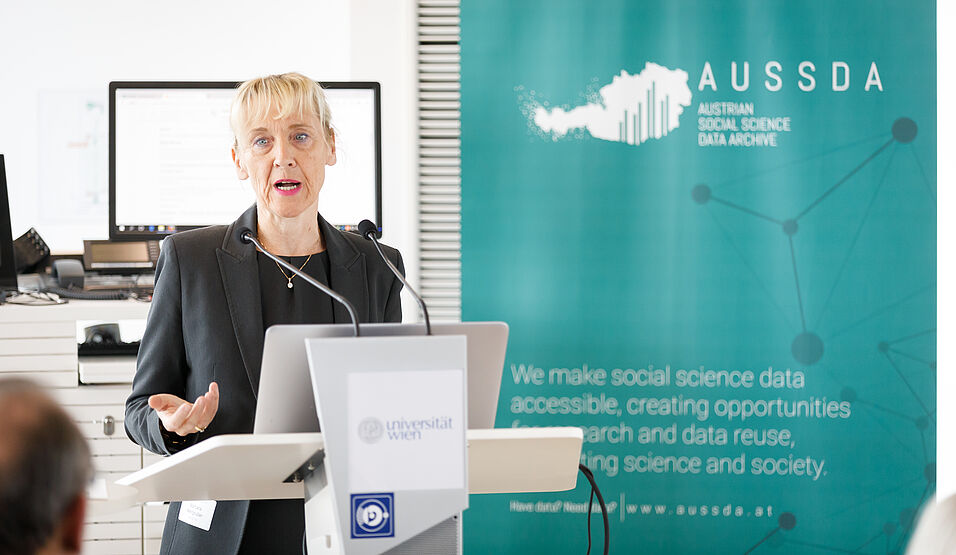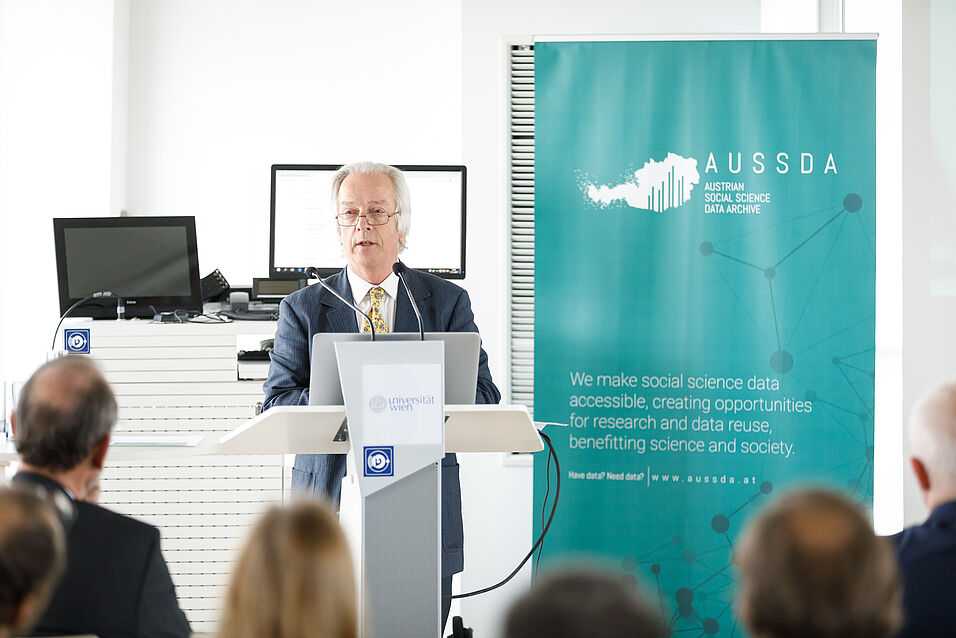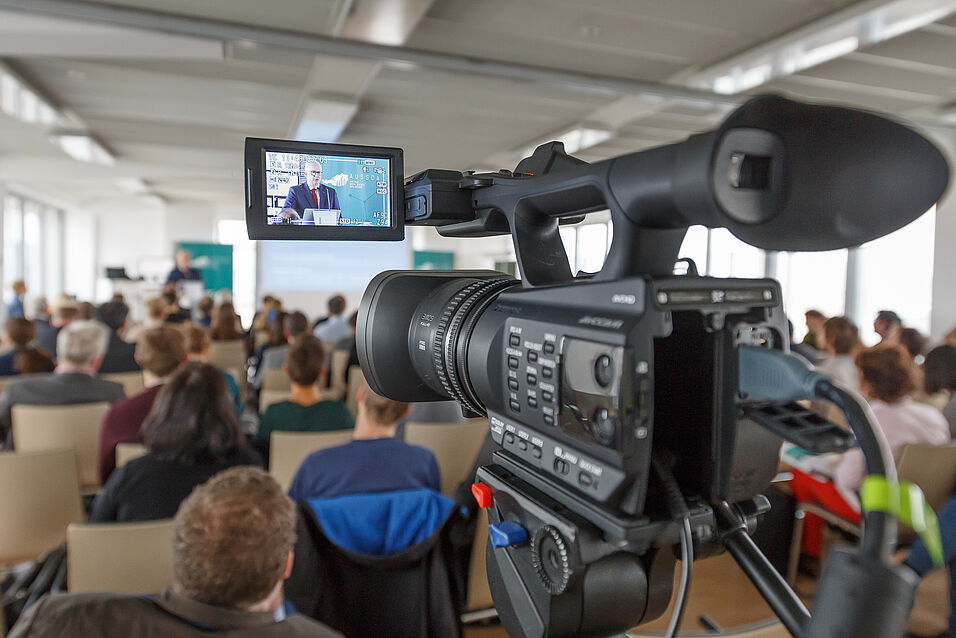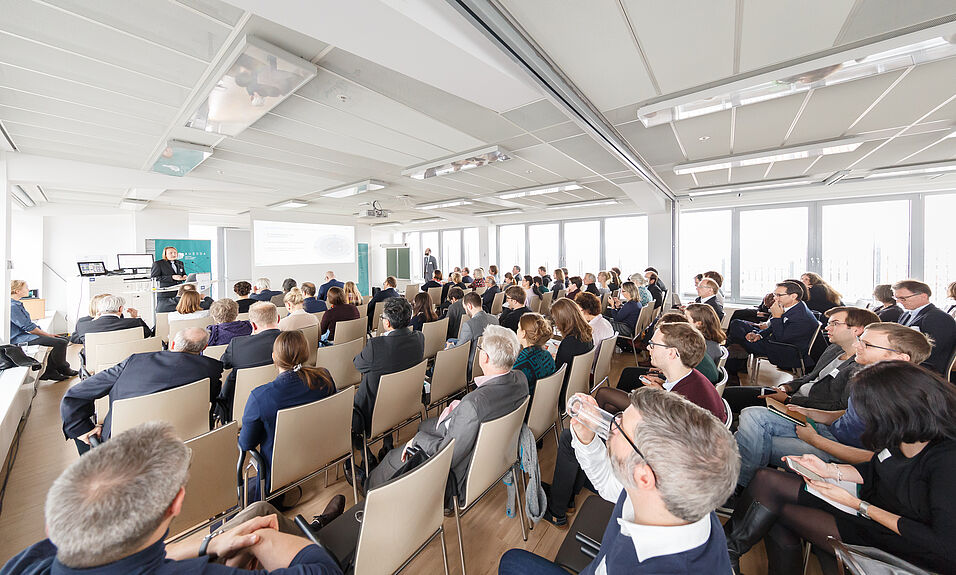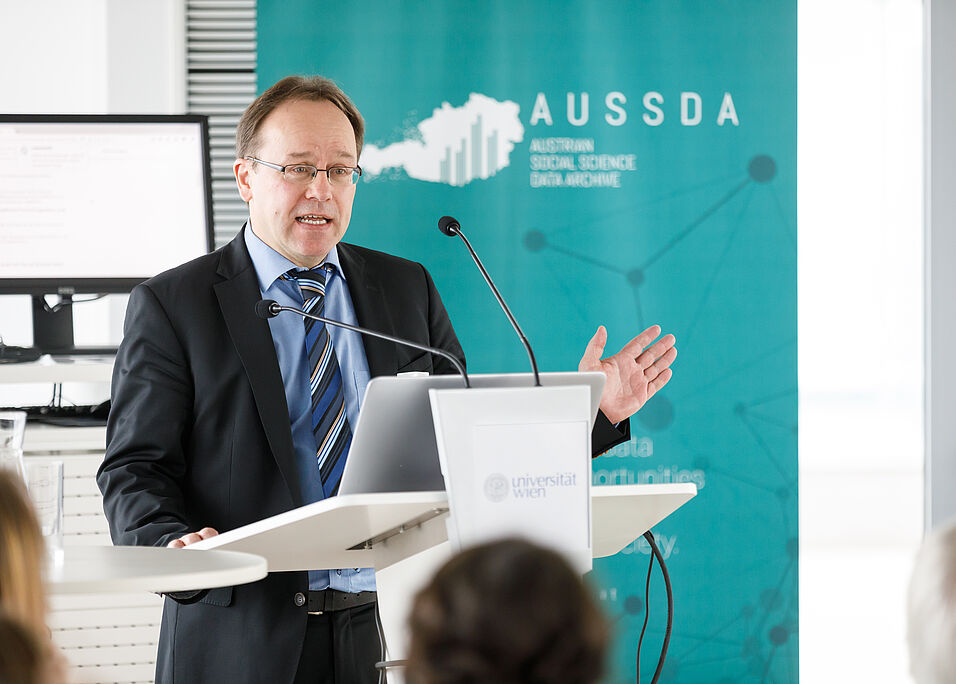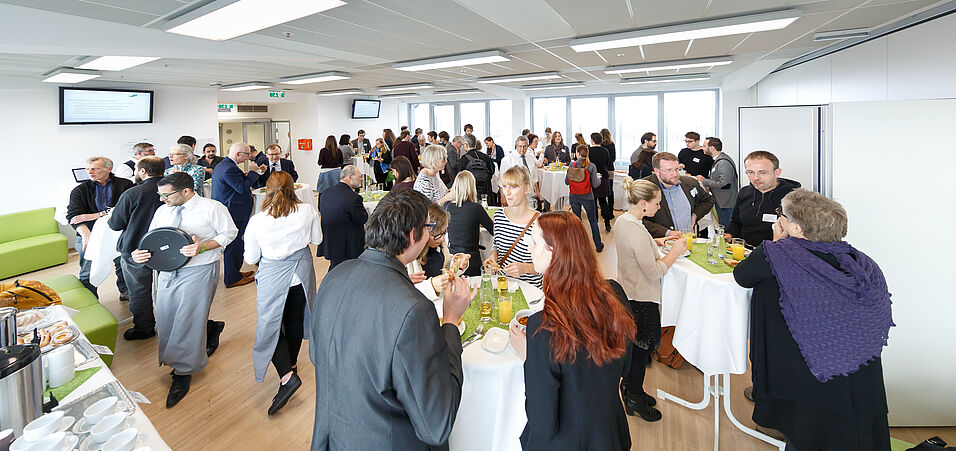The modern location – the Sky Lounge of the University of Vienna – offered a suitable atmosphere to talk about the future of social science research data in Austria. The event was kicked off by Vice Rector Heinz Fassmann, who was pleased about the strategic decision of establishing AUSSDA as part of the University Library. Elmar Pichl and Barbara Weitgruber from the Austrian Federal Ministry of Science, Research and Economy highlighted the importance of open data, interdisciplinarity and evidence-based policies.
Archiving in practice
The importance of data archiving in the research routines of social scientists was outlined by Cees van der Eijk of the University of Nottingham. He emphasized the significance of linking available data, using his own research as an example: To study European integration it is necessary to link data on parties, countries, and voters. Data archives offer tools, training and the infrastructure to study various phenomena. This is also important as it minimizes costs of scientific problem-solving.
Ron Dekker, Director of the Consortium of European Social Science Data Archives (CESSDA ERIC), illustrated the future of a European Social Data Platform, pointing out the value of linking data from various sources. He called upon researchers to archive and share their data as early as possible and to specifically target the public at large in their communication. The archives take up the vital role of guaranteeing and imparting trust and sustainability. CESSDA ERIC considers data to be the most important element for understanding society and for increasing scientific excellence and AUSSDA, as the Austrian Service Provider of CESSDA ERIC, is responsible for conveying trust and sustainability to Austrian users.
AUSSDA: A new archive for Austria
Lars Kaczmirek and Dimitri Prandner presented the launch of the new digital repository, and outlined what AUSSDA has to offer. The audience was introduced to the inner workings of the archive solution, as Lars Kaczmirek explained that it is organized into different collections, called “Dataverses”. This allows a quick overview of all material connected to one organization or research project. The step-by-step demonstration of how an access request works in the archive helped potential users understand the processes and there was also time to show some additional features, such as citation download and sharing via social media. Dimitri Prandner concluded by outlining the AUSSDA-services and the benefits of archiving.
Open Science, Dark Knowledge?
Klement Tockner, the President of the Austrian Science Fund, stressed that a large amount of data is not accessible to the general public. This becomes a problem when the public perception and the scientific consensus diverge in certain policy fields, such as global warming. Tockner called for transparency and a dialogue between science and society.
Additional public appearances
The team of AUSSDA is extremely happy about the growing interest in its work, signified by the number of attendees. The audience was presented with the progress of the archive and new possible cooperations were already discussed as well. We will continue to organize and attend public events and conferences. Next week on December 1st we will present our work at the Austrian Political Science Association in Graz. In the first week of December we will introduce AUSSDA at the Digital Humanities conference in Innsbruck, as well as at the conference of the Austrian Sociological Association.
The complete picture gallery and the presentations of the event can be found here
